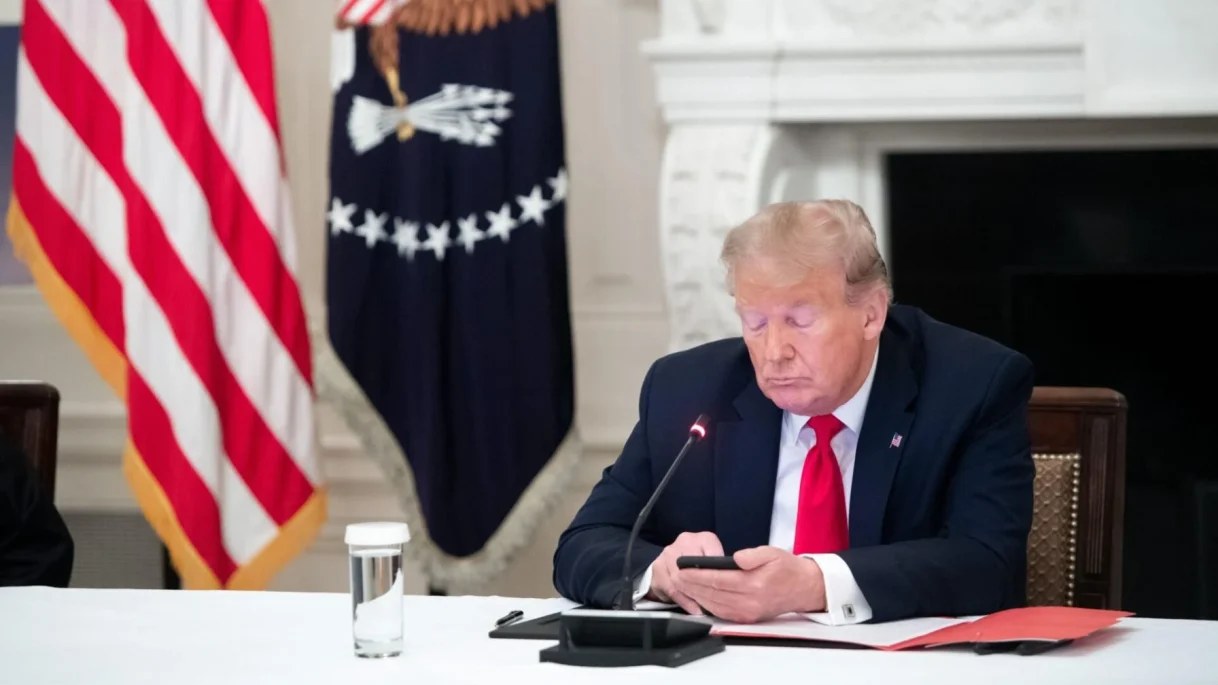Views: 62
In a dramatic pivot from its aggressive tariff strategy, the Trump administration has announced sweeping exemptions for smartphones, laptops, and other consumer tech products from its global tariff regime. The move, quietly revealed late Friday night via new U.S. Customs and Border Protection guidance, comes amid mounting market pressure and growing discontent from tech giants.
📱 Major Reprieve for Apple, Samsung, and Others
According to Bloomberg, the exemptions cover a wide array of electronics—including iPhones, MacBooks, Android devices, Windows laptops, memory chips, hard drives, and GPUs. This roll-back excludes video game consoles, however, leaving the fate of the upcoming Nintendo Switch 2 still uncertain in terms of pricing.
The newly published carve-outs mean that affected devices will no longer be subject to the existing 10% universal import tariff, nor the much harsher 145% China-specific tariff. Even more notable, the exemptions are retroactively applied from April 5, 2025, effectively nullifying tariffs charged over the last week.
💼 Market Pressure and Tech Industry Pushback
This policy reversal seems driven by intense backlash from investors and tech companies alike. The markets have shown wild volatility in recent weeks, reacting to every signal—however minor—that the White House might be open to compromise.
Trump hinted at possible tariff relief during an offhand remark on Air Force One, stating there could be “a couple of exceptions for obvious reasons.” While vague, the subtext was clear: the administration is looking to protect the bottom line of major American tech firms as stock prices and consumer sentiment wobble.
✈️ Apple’s Emergency Moves and Retail Price Spikes
Apple, one of the hardest-hit by the initial tariffs, reportedly airlifted 1.5 million iPhones from India into the U.S. in a last-ditch effort to avoid massive import costs. The company had warned that device prices were likely to spike. Other major tech players, including Asus, Sony, and Nvidia, began raising retail prices as the tariffs took hold, prompting a brief but intense consumer rush to purchase devices before hikes became permanent.
Now, those price jumps may be postponed—or reversed—as the exemption takes hold. Still, supply chain disruptions and tariff chaos over the past week may have lasting ripple effects.
⚙️ The Reality Check on Domestic Manufacturing
This rollback also marks a sharp departure from Trump’s repeated claim that the U.S. should be able to build its own smartphones domestically. Earlier this week, Press Secretary Karoline Leavitt stated that Trump “believes we have the labor, we have the workforce, we have the resources” to build iPhones in the U.S.
Economists and manufacturing experts were quick to disagree, pointing out that creating a viable domestic production line for smartphones would take years to develop and could push the price of an iPhone north of $3,500—not exactly market-friendly.
🔍 What This Means for Consumers
If you were holding off on a tech purchase out of fear of looming tariffs, you can breathe a sigh of relief. The exemption is great news for consumers and companies alike—particularly for those who had scrambled to adjust pricing, logistics, or supply chains. Whether the administration will maintain this softer stance on tariffs remains to be seen, but for now, tech appears to have won a major battle in the ongoing trade war.
TL;DR:
✅ iPhones, MacBooks, Android devices, and key PC components are now exempt from Trump’s global and China-specific tariffs
🚫 Video game consoles like the Nintendo Switch 2 are not included
📉 Apple, Nvidia, and others had already begun hiking prices—this may stabilize things
💬 Trump’s manufacturing ambitions face cold reality as market forces drive a rollback
📰 Stay tuned as the tariff drama unfolds—again.

